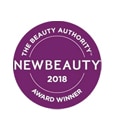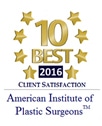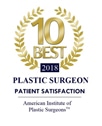Nose surgery or rhinoplasty is a surgical procedure done to correct a prominent, unusual, asymmetric, or irregular nose. It is one of the most commonly performed cosmetic procedures. Rhinoplasty can also be used to correct an undesirable nasal tip or to reshape the span of the nostrils. This surgery can help with your self-image if you are self-conscious about your nose.
Candidates must be in good health, have no active diseases or serious, pre-existing medical conditions, and must have realistic expectations of the outcome of the surgery. In general, rhinoplasty should not take place until after the nose approaches adult size. Usually this is after age 14 for girls, and 15 for boys, since boys tend to have their growth spurt later than girls. Not every teenager who dislikes his or her appearance is a good candidate for rhinoplasty. Many teens will outgrow their dissatisfaction with their nose. Roughly 10% of all rhinoplasties are performed in people younger than nineteen. In adults, the aging process causes skin to lose its elasticity, resulting in a nose becoming longer and drooping. Surgery to elevate the nasal tip may give the patient a younger look.
NOTE: You may not be a candidate for surgery if you smoke, have recently quit smoking, or if you are exposed to second-hand smoke. Primary and secondary smoking decreases blood flow to the body’s tissues. This can result in prolonged wound healing, skin loss, infection, increased scarring, and a number of other complications depending on the kind of procedure performed.
The technique chosen for your surgery will be determined by your anatomy, your surgeon’s preferences and your desired results, which will be discussed during your initial consultation.
If you are having breathing problems, they may be improved by a procedure called septoplasty, which corrects defects or deformities of the nasal septum.
Communication is vital in reaching your goals. By scheduling a consultation, you will have the opportunity to discuss your goals and the results you’d like to achieve. Your surgeon will work with you to reach an understanding about what you can expect from this procedure and what long-term benefits you will experience. Every patient is different, and your surgeon will choose the surgical technique and treatment plan that is right for you.
You will be given specific instructions on how to prepare for your surgery. A pre-operative information packet will be provided that explains everything you should do and know before your surgery date. Your plastic surgical team will instruct you on how to prepare for surgery, including guidelines on eating and drinking, smoking, and which vitamins and medications should be taken or avoided. You should arrange for someone to drive you home after your surgery, whether your surgery is done on an outpatient or inpatient basis. You may also want to make arrangements for someone to help you out for a day or two after you leave the hospital.
The majority of these procedures are completed on an out-patient basis. Dr. Roesner has surgical privileges at North Suburban Medical Center, Avista Adventist Hospital as well as St. Anthony Hospital.
General anesthetic is used so that you will sleep and remain comfortable throughout the procedure. Local anesthesia with intravenous sedation is also an option for some patients.
It is very important that you follow your surgeon’s instructions. This will promote healing and improve progress towards your new physical appearance. Also, it is important that you attend all scheduled follow-up appointments so that your surgeon can assess your long-term results and answer any questions or concerns you may have.





I had the Laser Genesis treatment. The procedure was comfortable on my skin and without any downtime for noticeable results! I would highly recommend this procedure. The entire office is great to work with and an awesome team. L.T., Lafayette
Amazing staff , ready to answer all my questions , I felt very comfortable talking to them ,specially Leah , she made feel very secure about the procedures and totally happy of have chosen them. Zuleyma F.
Fantastic! I have had multiple procedures done by almost everyone in the office . I recommend this place to everyone! Love this place! Lindsay W.
